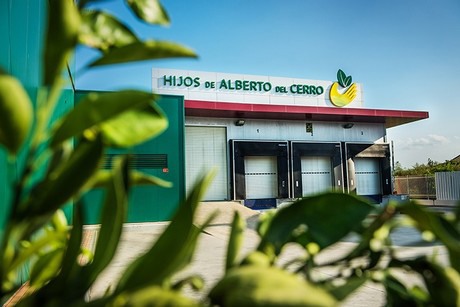
The commercial window of Spanish lemons in the summer months has become more important in recent years and exporters are finding more and more opportunities. The sector is investing more in this part of the campaign by expanding the acreage and betting on new varieties, although it is also facing various challenges, such as the rising cost of land and the lack of water resources.
 From left to right: Enrique Fuentes and Martina Lípová, of the commercial department, and Juan del Cerro, president of Hijos de Alberto del Cerro.
From left to right: Enrique Fuentes and Martina Lípová, of the commercial department, and Juan del Cerro, president of Hijos de Alberto del Cerro.
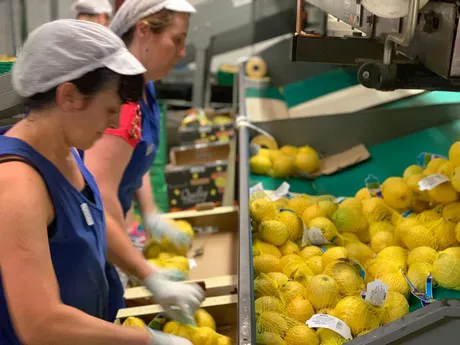
Hijos de Alberto del Cerro sells some 26 million kilos of lemons per year. This fruit is intended both for the domestic market and for export, with France as the number one destination, followed by Germany, Belgium, the United Kingdom and Eastern European countries, as well as other destinations overseas. Although lemons are at the core of the company's business, other citrus fruits and vegetables are also supplied as a complement. The company has just inaugurated a warehouse for the handling and packaging of organic citrus fruits.
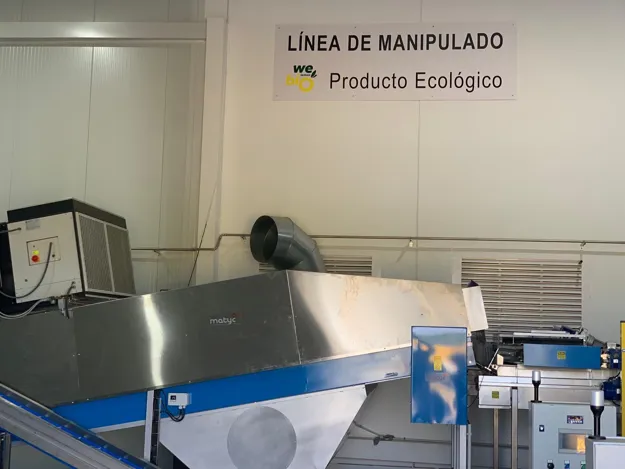
FreshPlaza visited its facilities in Raal, in the Spanish province of Murcia, where we were received by the president of the company Juan del Cerro, and by Enrique Fuentes and Martina Lípová, of the commercial department
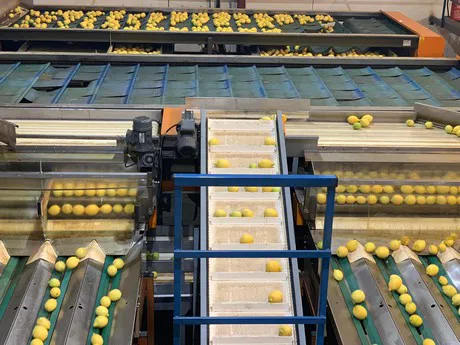
"The Verna lemon season is developing better than we expected, as the quality so far is good and there is a large volume of fruit available, which translates into stable sales and acceptable prices," says Enrique Fuentes. The Spanish lemon campaign will be long this year, as there are more volumes and the harvest has been slightly delayed. We expect sales to continue until the end of July with stable volumes, which means that there will be less overseas imports."
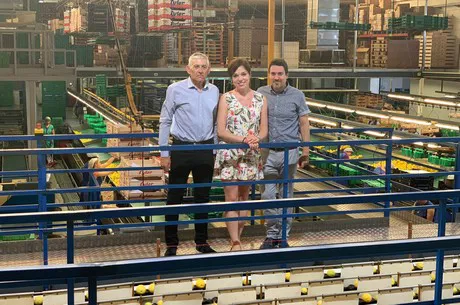
The Spanish lemon harvest has been greater than in the previous year, as the acreage has also been expanded in recent years. "The latest campaigns have been good in terms of prices, partly due to production failures in third countries and the growing demand for lemons worldwide. This has motivated producers to plant more lemons, especially of the Verna variety. At the moment, it is difficult to expand the acreage in Murcia, since it is not so easy to find new areas that are suitable for the crop, and moreover, the prices of land and water for irrigation have become very expensive," says the sales person. "For this reason, there is an on-going search for new varieties or patterns that can help improve the yields," he says.
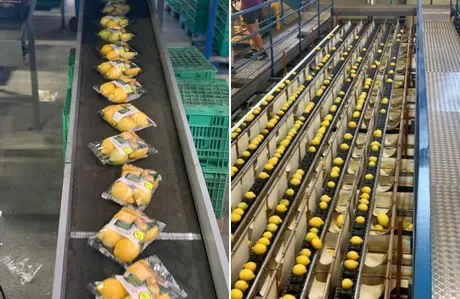
Thus, one of the keys for the future of lemons in Murcia is the development of new varieties; a field in which, according to Juan del Cerro, there's a lot of progress to be made, in the case of this citrus fruit. The company recently invested in the planting of the new variety Summer Prim, of the Club of Protected Varieties, which will be marketed for the first time this year, with a production expected to reach 3 million kilos within the next 3 years.
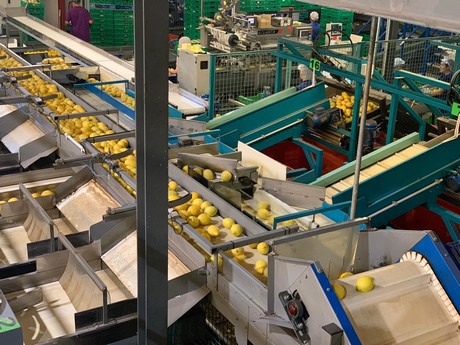
"The truth is that very ambitious research is being carried out in order to obtain new citrus varieties, and hopefully, we will see results soon. The Spanish sector produces mostly two lemon varieties: the Primofiori in autumn and winter and the Verna in summer. This year, we are going to carry out the first commercial tests with the Summer Prim, a variety resulting from a spontaneous mutation of the Primofiori which could allow us to extend the harvest to the summer months. Therefore, we would be able to supply a lemon like the Primofiori throughout our entire campaign (from September to July); a lemon that is appreciated for its organoleptic qualities, including its high amount of juice and thin skin. If everything works out as we expect, we will invest a lot more in the next three years, aiming to triple the acreage. In this new situation, we would have a variety that perfectly complements our Verna and Primofiori productions, and that achieves higher yields in the field."
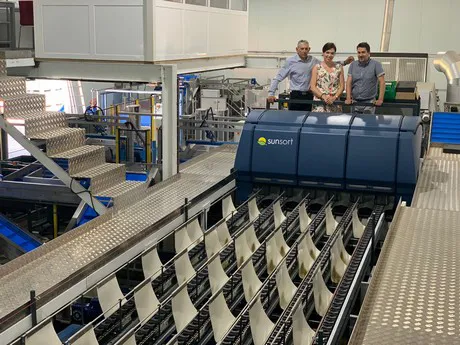 New facilities for the handling and packing of organic lemons, with the latest Sunkist sorting technology
New facilities for the handling and packing of organic lemons, with the latest Sunkist sorting technology
"Given the threats that the sector is facing, we ask the various government agencies for better coordination. The idea is to prevent situations such as one when an important phytosanitary product could not be used in the EU, but at the same time, MRLs had been set for imported fruits. Lastly, it is worth mentioning that there is growing competition from third countries, such as Turkey or Egypt, and that this has a big impact on Spanish lemon exports, although Juan del Cerro believes that it should not be a cause for concern. "Our company has made a clear bet on organic production, food safety and freshness, which is what our customers mostly demand," he says.
For more information:
Enrique Fuentes
Hijos de Alberto del Cerro
C/ Mayor, 372.
30139 El Raal, Murcia. Spain
T: +34 968600162
M: +34 696982440
enrique@albertodelcerro.com
www.albertodelcerro.com
